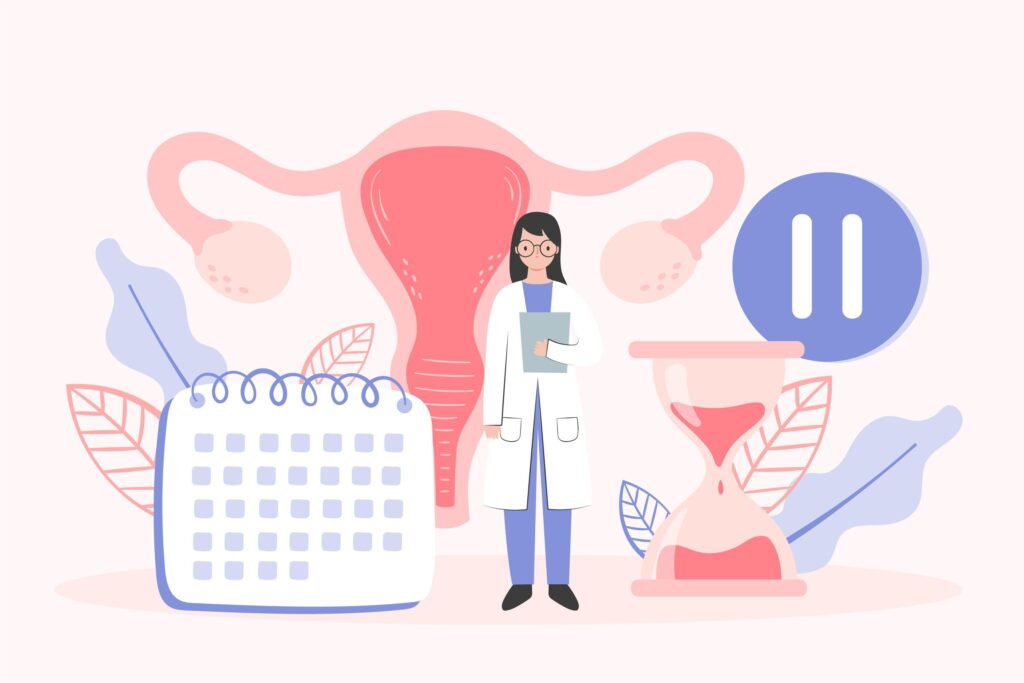Menopause

Menopause marks the end of a woman’s reproductive years and is characterized by the cessation of menstrual periods. It typically occurs in women between the ages of 45 and 55, although the timing can vary. Menopause is a natural biological process that brings about significant hormonal changes in the body.
During menopause, the ovaries gradually produce less estrogen and progesterone, leading to a variety of physical and emotional symptoms. Common symptoms of menopause include hot flashes, night sweats, vaginal dryness, mood swings, sleep disturbances, and changes in libido.
The transition leading up to menopause, known as perimenopause, can last for several years and is often marked by irregular menstrual cycles and fluctuating hormone levels. Perimenopause typically begins in a woman’s 40s but can start earlier for some women.
Menopause can also increase the risk of certain health conditions, including osteoporosis, heart disease, and urinary incontinence. It’s essential for women going through menopause to prioritize their health and well-being by maintaining a healthy lifestyle, including regular exercise, a balanced diet, and routine medical check-ups.
Managing the symptoms of menopause may involve lifestyle modifications, such as dressing in layers to manage hot flashes, using vaginal lubricants for dryness, or practicing relaxation techniques to reduce stress. Hormone replacement therapy (HRT) may also be prescribed to alleviate severe symptoms, although it carries certain risks and should be used under medical supervision.
